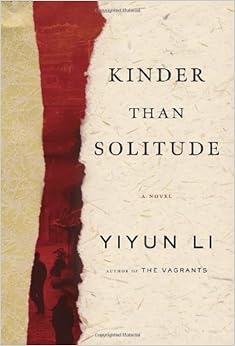
What happens if you strip all your characters - indeed, your whole story - of sentiment? Answer: you get this bleak exploration of solitude and isolation that delivers as a literary experiment in modernism but shortchanges such traditional storytelling elements such plot, pacing, and authenticity.
In this case, you really can summarize the plot in a single blurb: 21 years later, three former friends struggle to cope with the mysterious death of a friend by ruthlessly expunging their lives and souls of sentiment. It’s easy to summarize the plot because there’s so little of it. Even the “mysterious death” isn’t truly mysterious; the tragedy merely serves as a narrative device to explain why the characters have decided to strip their lives of sentiment, and for the author to explore the complex tangle of perception and self-denial that they use to justify their lives of emotional isolation.
Friend #1, Boyang, dooms himself to solitude by choosing to keep the tragedy - and its consequences - entirely secret from everyone else in his life, thereby ensuring that none of his relationships will ever be honest or emotionally fulfilling. Friend #2, Ruyu, as an orphan, is literally lonely from birth; just to underscore the point, however, the author provides her with a set of cold, manipulative adoptive aunts who raise her to place herself apart from others. Friend #3, Moran, creates her own loneliness by ruthlessly purging herself of past and future. In sharing their stories, author Li likewise ruthlessly strips her prose of sentiment, refusing to judge her characters or their choices. (The one exception to this is the author’s descriptions of Beijing; perhaps her overly-sentimental descriptions of the city’s beauty and history are meant to serve as an intentional counterpoint for the rest of the tale?)
Even so, it’s hard not to interpret this as a moral admonition about the consequences of living your life without courage, without connections, without love. While each of these characters appear outwardly successful and happy, their internal lives are unrelentingly bleak. Plenty of books before this one have struggled with “the purpose of life” – is it enough to exist, or is existence without connection somehow “wimping out”? For all Li’s care to withhold judgment, by the end of the book it’s hard not to conclude that any human interaction, no matter how shallow, is still “kinder than solitude.” Even the novel’s major subplots – in which various Chinese citizens resign themselves to living in oppression rather than risk voicing their true feelings - seem to affirm this conclusion.
For the most part I found this exercise in literary experimentation to be novel and worthy, if not particularly entertaining or diverting. However, the pacing of the novel was problematical for me. While Li may refuse to pass judgment on her characters, they themselves appear trapped in endless, vicious loops of self-examination. Rarely do they allow a decision, an idea, even a sentence of spoken dialog to pass without at least 1-2 paragraphs of meticulous dissection and reflection. Mind you, thanks to Li’s narrative gifts, these reflections are often beautiful and penetrating. It’s just that there’s so MUCH reflection … after a time, I began to understand why writers are urged to “show, not tell.” Between the slow-as-molasses plot, the difficult-to-sympathize-with characters, and Li telling us pretty much everything, there’s just not that much left over to keep a reader engaged.